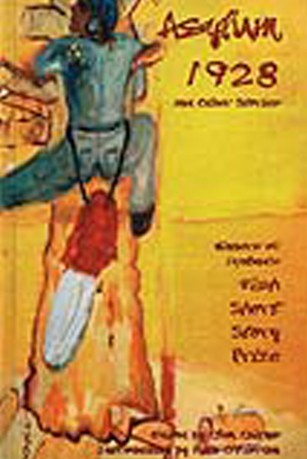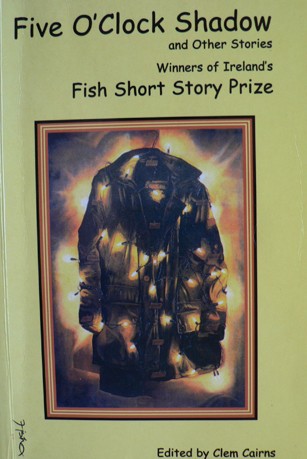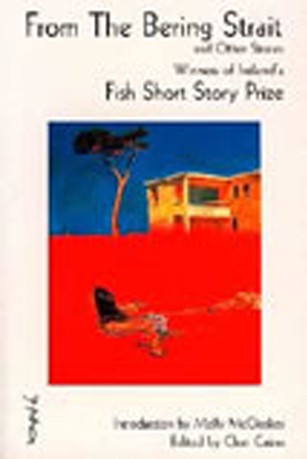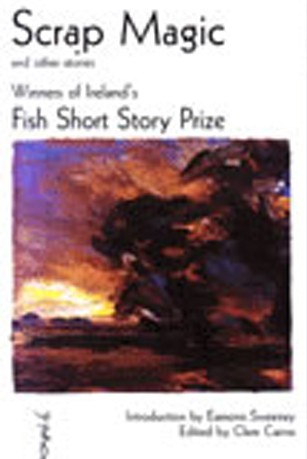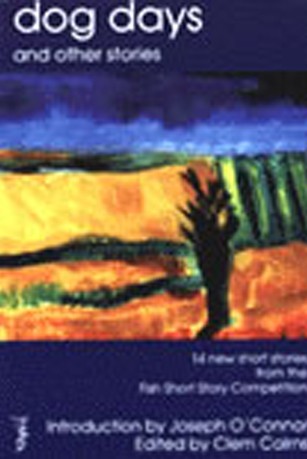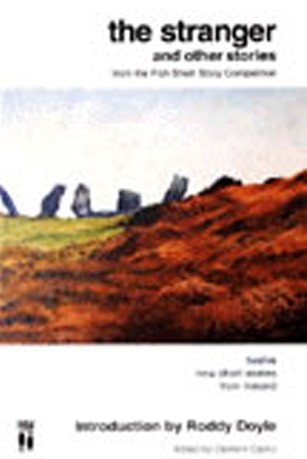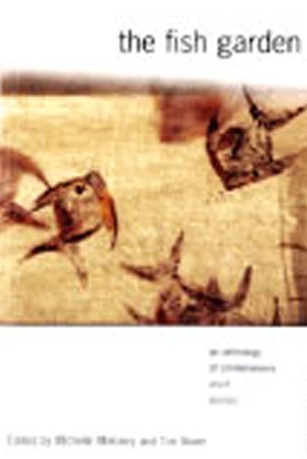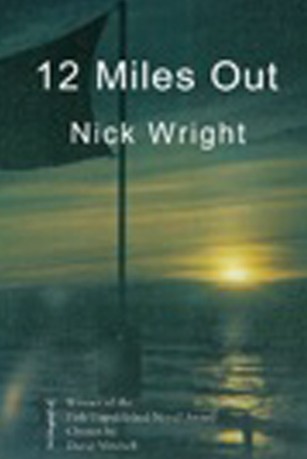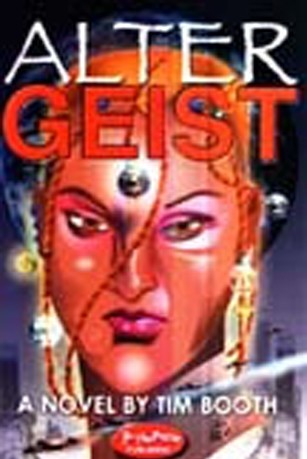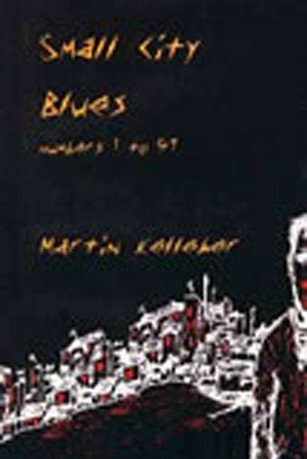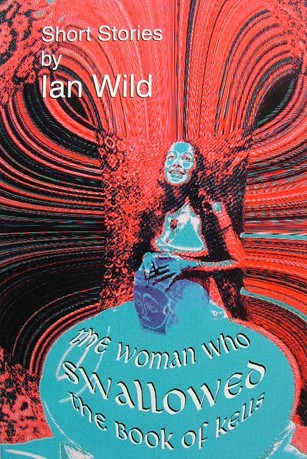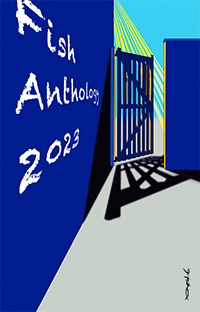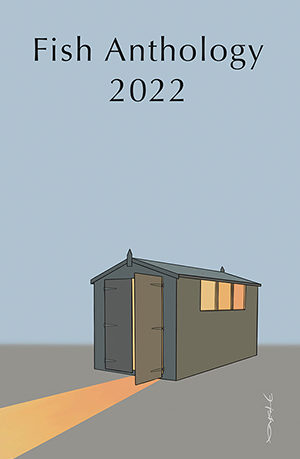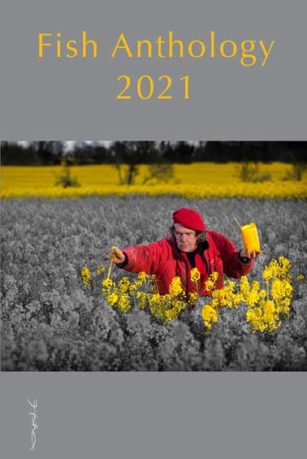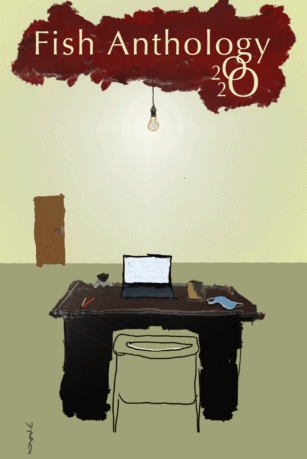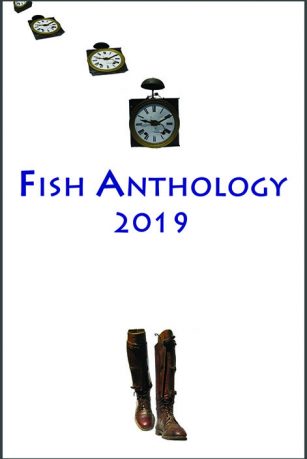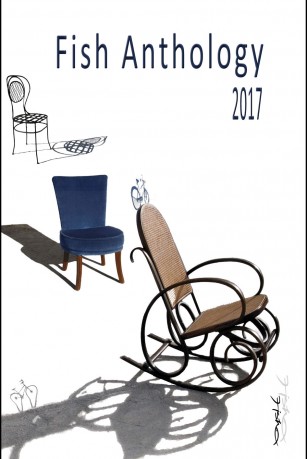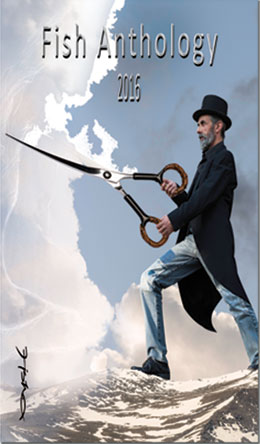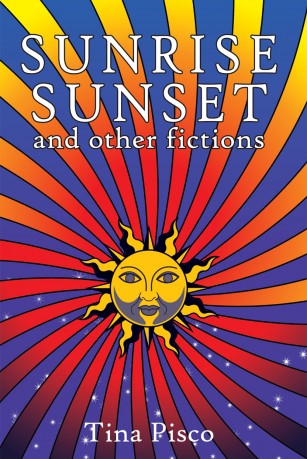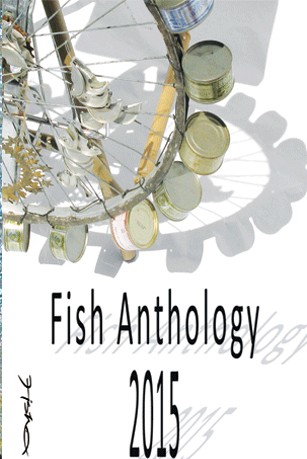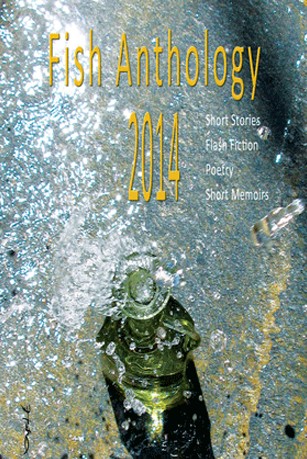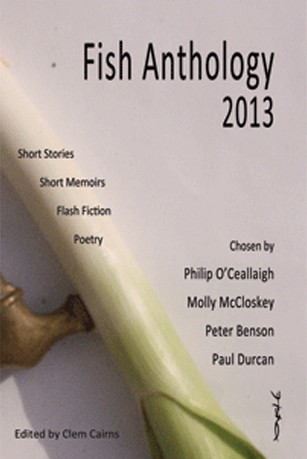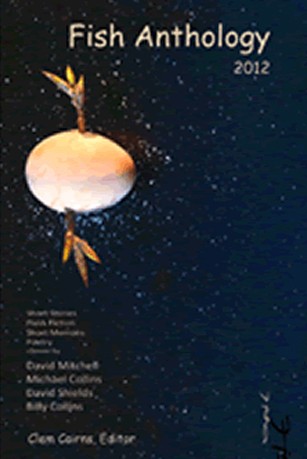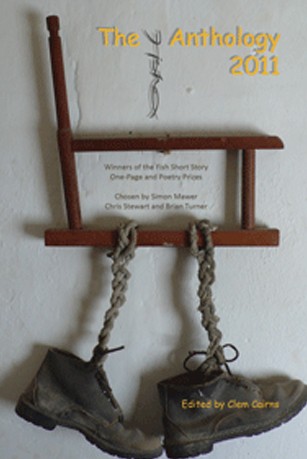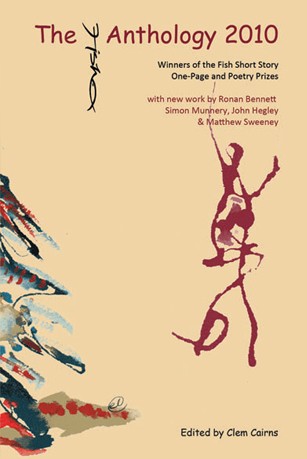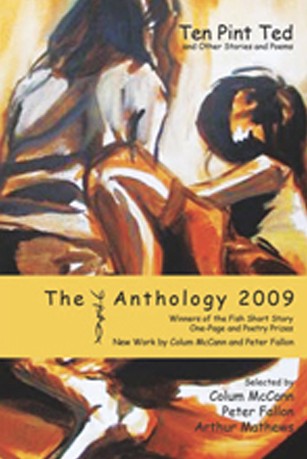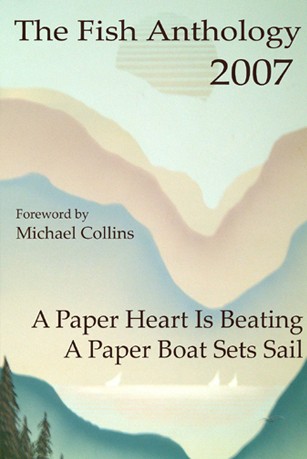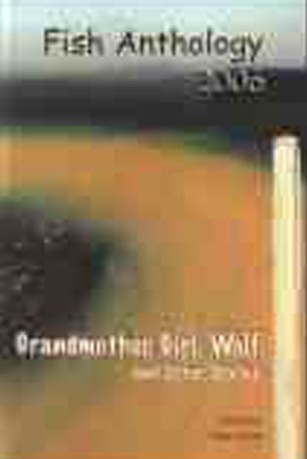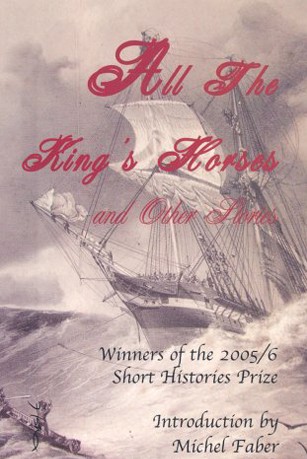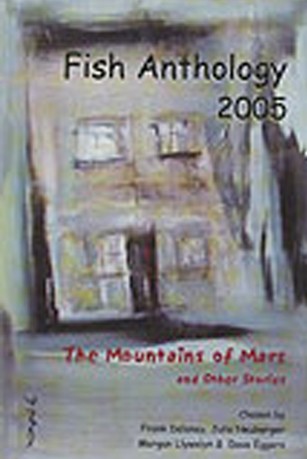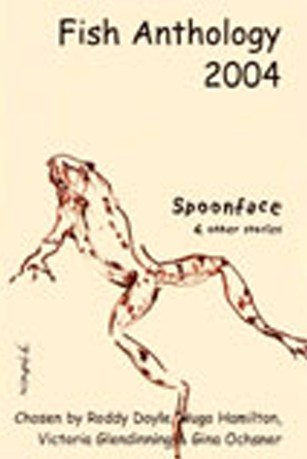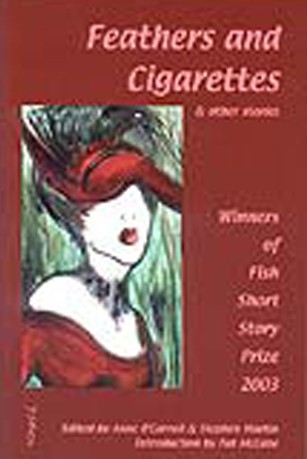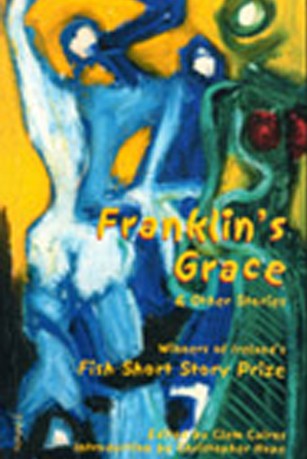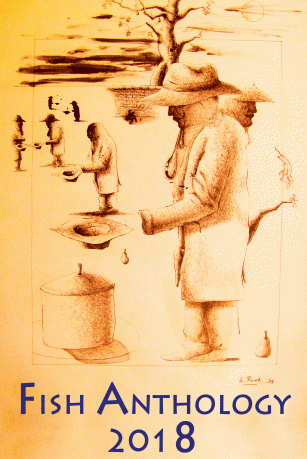
Fish Anthology 2018
Fish Anthology 2018 –
SELECTED BY:
Billy O’Callaghan ~ Short Story
Marti Leimbach ~ Short Memoir
Sherrie Flick ~ Flash Fiction
Ellen Bass ~ Poetry
Read an excerpt from winning short story – Clippings by Helen Chambers
Read winning flash story – The Chemistry of Living Things by Fiona J Mackintosh
Read an excerpt from winning memoir – What Was Once A City by Marion Molteno
Read winning poem –Vernacular Green by Janet Murray
Introduction
by Clem Cairns
(This book is an anthology of the winning entries from the Fish Short Story, Short Memoir, Flash Fiction and Poetry Prizes. The final short-lists were judged by Billy O’Callaghan, Marti Leimbach, Sherrie Flick and Ellen Bass, respectively. My thanks to them, to our sposors Sue Booth-Forbes of Anam Cara and Anne Hunt of Casa Ana and to the team of Fish readers who made the short-lists. Not least, thanks to all of the 4,500 writers who submitted their work and made this Anthology possible.)
All of us who read books, we love to be swept away into another world. It can be a pure pleasure to read the day away or the weekend, or your whole damn life. If, having read a piece of literature, you have been edified in some way, or have altered the way you see something, it’s not just a bonus, you’ve won a trophy. Good literature could be defined by the trophies that it awards.
Like many a genuine work of art, a good story or poem will try to answer a question, will reach a little into the unknown and pull some undiscovered or unrealised thing into the light. Sometimes the ‘seeing’ can be an uplifting feeling, sometimes uncomfortable. But whether the trophy is a delight or uncomfortable to hold, it’s an award to be coveted.
From the collection of great writing uncovered in this Anthology, trophies will be awarded by different pieces, depending on the reader’s perspective. My personal trophy-shelf has been greatly added to. I hope yours will be likewise.
Contents
|
|
|
SHORT STORIES |
|
|
|
Clippings |
|
Helen Chambers |
|
Herr Siegfried Ottmar |
|
Thiva Narayanan |
|
Beatitudes |
|
Janet Smith Moore |
|
Cranberry Sauce |
|
Emma Seaman |
|
Ginger Snaps |
|
Linda Edwards |
|
Drive All Night |
|
Alan S Falkingham |
|
He Writes |
|
Travis Elsum |
|
Hope is the Thing With Feathers |
|
Georgina Eddison |
|
Yana |
|
Georgina Eddison |
|
Psittacus Erithacus |
|
Percy Herbert |
|
FLASH FICTION |
|
|
|
The Chemistry of Living Things |
|
Fiona J Mackintosh |
|
Beige |
|
Gail Anderson |
|
Walrus Brings the Dominoes |
|
Laura Mahal |
|
Dover |
|
Shannon Savvas |
|
Oh |
|
Johanna Ellersdorfer |
|
Sage |
|
Julian Stanford |
|
The Last Limner of Peterborough Town |
|
Guinevere Glasfurd |
|
Always Wear a Safety Helmet |
|
Paul Hale |
|
Her Troubled Mind’s Reflection |
|
Darren Moorhouse |
|
In a Nomad’s Land |
|
Craig Kenworthy |
|
SHORT MEMOIRS |
|
|
|
What Was Once A City |
|
Marion Molteno |
|
Where the Track Forks Left and Where the Track Forks Right |
|
Jane Fraser |
|
Glue |
|
Ruth O’Shea |
|
Banbridge Lass |
|
Wendy Breckon |
|
Midwife’s Daughter |
|
Saffron Marchant |
|
Documented |
|
Pauline Cronin |
|
The Logic Of Blue Pyjamas |
|
Fiona Montgomery |
|
Without Breaking The Air |
|
Christina Sanders |
|
Wilderness |
|
Paul McGranaghan |
|
Shell |
|
Deborah Martin |
|
POETRY |
|
|
|
Vernacular Green |
|
Janet Murray |
|
Our Liberator, Dead |
|
Raymond Sheehan |
|
Someone Said |
|
Dennis Walder |
|
America |
|
Partridge Boswell |
|
Ode to The Girls Who Deserved What They Got |
|
Ash Adams |
|
Past Rivermills |
|
Gabriella Attems |
|
Jesus in a Teacup |
|
Karen Ashe |
|
Approaching Gria |
|
Ann M Thompson |
|
Listen |
|
Caroline Bracken |
|
Father’s Day |
|
Pat McCutcheon |
|
BIOGRAPHIES |
|
|
Clippings
by Helen Chanbers
Julia
September 1976
‘Julia – do you want to come and make something in my shed, while Mummy’s asleep?’ says Tilly. Tilly’s shed! I’m never allowed in Tilly’s shed.
‘Yes please, Tilly!’ I jump up and take hold of her cool hand with its big fingers, bigger than Mummy’s, her chunky ring too large for me to hold on properly.
Then I remember Daddy. ‘Making stuff’s for babies,’ I tell her. ‘I’ll wait here until Mummy feels better.’ I let go of Tilly’s hand, and Tilly stands up even straighter and taller.
‘Suit yourself, madam,’ she says. ‘I’m going out into my garden, so you can come if you want.’
I still want to see in her shed. I don’t think Daddy would mind me seeing in Tilly’s shed.
I follow her outside. The air feels cool and free. Tilly’s a gardener and she has a beautiful, enormous garden. Mummy likes it too, and smiles a secret smile each time we come here. I told Daddy about Tilly’s lovely garden and how much Mummy likes it but he frowned. I don’t think he likes it.
‘When I’m out here, I collect bird feathers I find lying around,’ says Tilly, unlocking the padlock on her shed with a tiny key from her trouser pocket. Tilly doesn’t wear pretty skirts and dresses like Mummy. Tilly always wears trousers with pockets, good for keeping things in, she says.
Inside, the shed smells just like Daddy’s shed, but it’s bigger and tidier. There are shelves and shelves of plastic tubs and bottles. Hanging from hooks on one wall are garden tools, which Tilly says I must never touch unless someone helps me. She rubs them with a rag to clean them when she’s finished using them, she says. She doesn’t rub her fingers though, I can tell. There’s always dirt under her nails. Mummy says it’s good dirt because it’s earth from the garden. If I get dirt under my nails, Mummy makes me use a nailbrush. She should make Tilly use one too.
Tilly pulls a chair over to the workbench and turns it round the wrong way so I can climb up to kneel on it and reach. She fetches down an enormous plastic tub with the word ‘feathers’ written on it. All the tubs have neat labels and lids and Tilly lets me write my name on an empty one. My writing goes downhill, not neat like hers, but she doesn’t say anything about it like Daddy does.
‘Yours, and no one else’s,’ she says, and smiles. ‘You can keep your treasures in it.’
Tilly knows I’ve got some things on my bedroom windowsill. Sunflower seeds left over from a packet we planted in the spring, a tiny fir cone and a stone with a hole in it, called a hag stone, says Tilly, to keep the witches away. Daddy called her a witch.
I open the ‘feathers’ tub. There are tall, stiff brown-and-white-striped feathers, tiny soft fluffy ones (‘from the bird’s tummy,’ says Tilly) and some little blue ones with black lines. I gasp, it’s such a bright blue.
‘Those are from a jay,’ says Tilly. ‘They fly into my garden sometimes. Aren’t they lovely?’
‘Can I use them?’
‘Use any you like, Julia. Here’s some twine.’ She hands me a ball of twine. It means dirty, rough string for the garden. I’ve used twine before.
‘Twine,’ I say again. I like that word.
‘What would you like to make? An Indian headdress for Let’s Pretend?’
I like Let’s Pretend, but I’m too grown up. I shake my head, and clump the feathers into a big ball. ‘I want to make a new bird. A bird that can really fly, and sing.’
Tilly laughs. ‘OK, Julia. Shall I help?’
She gives me big garden scissors and lets me cut the twine myself, and helps me tie tight knots. It doesn’t look much like a bird, but it has a head and a body. Tilly says to look for twigs to make its legs, and shows me how to pull out feathers at one end to make a tail. We just need to give it a beak, and Tilly gets a tiny bud. She lets me cut it with special garden scissors called secateurs, then I have to wipe the blades away from me with the oily rags.
We take the bird outside to show it the garden. I hold it out on my hand so it can flap its wings. ‘It’s going to fly up to Mummy’s bedroom window,’ I say, ‘and it’ll sing a beautiful song to make her headache go away.’
‘What a thoughtful girl you are,’ says Tilly, smiling. ‘Mummy will love that.’
Just then, the telephone rings inside the house, an angry sound like wasps.
‘I’d better get that,’ says Tilly, ‘in case it’s your father again.’
I do want it to be Daddy because I miss him, and I don’t want it to be him, because then there might be another argument. Tilly strides inside, and I whisper to my bird, telling it to fly up to Mummy and make her better and happy. It flaps and then it flies, first in small circles, then upwards, higher and higher, higher than the roof, higher than Mummy’s window. I’m frightened it might go too high and get lost.
Tilly is striding over the lawn, her face red and screwed up. ‘Well madam. You’ve got your own way again. Your Dad’s coming to get you tomorrow, because you told him you wanted him to. Isn’t that what you wanted? You’re going home, like it or not, he says.’
‘What about Mummy? Is she coming home too?’ I say.
Tilly frowns some more and shrugs. ‘I don’t know.’
And my bird, my lovely bird to make Mummy happy, has stopped flying and has fallen out of the sky and the feathers are spread all around, drifting like snow. I rush around to pick them all up. I shove the feathers into my ‘Julia’ tub, quickly, before Tilly sees what I’ve done with my bird. I rub my tears away.
‘You’re not crying, are you?’ she says, when I come out of the shed.
‘No,’ I say.
But we both know that Mummy will cry when Daddy comes, and I feel sad all over again.
The Chemistry of Living things
by Fiona J Mackintosh
The blue ones make me dream of thistles, make me loop-de-loopy, shaking bubbles from my wrists. The big yellow ones are slow-witted and tip me into drenching sleep at unexpected hours. The white diamonds have a certain easy charm, but it’s the tiny silver ones I like the best. In my cupped palm they roll like mercury balls, but in my head they fizz and dazzle, splintering into gaudy reds and greens. They’re the reason I can glide above the broken glass, put a soft hand on my husband’s shoulder as he tells our guests another story and nods to me to bring the coffee and dessert. Smoke coils beneath the lamp, softening the light. The faces round the table seem familiar, but I don’t know who they are, the men with bristled hair, the women oiled and shiny with cat’s-eye glasses and wet teeth. Mouths open, voices bourbon-loud with the looseness of late evening. The noise pulls close around my head like curtains as I rinse the dirty plates and spear a perfect sprig of mint in every peach sorbet. Against the backsplash, the pill bottles gleam, and I promise-touch each one for later. You and you and you. Through the window, just beyond the house-thrown light, a young deer stares at me with deep, black eyes. I see its dappled hide, a white stripe on its haunch that may or may not be a scar. I know at once it’s come to lure me out into the dark and unfamiliar, onto bleak, untrodden ground. I press my hands five-fingered on the window, and, when I wipe away the cloud my breath has made, the deer has gone like it was never there at all.
What was Once a City
Marion Molteno
The alarm goes off. I startle awake – hotel room, Nairobi, still dark outside. It’s scarcely four hours since I sat beside the pool, idle late-night chat with a man I had met just a few hours earlier, who said – like a dare – ‘If you’re coming, we have to be at the airfield before dawn.’
I asked no one’s permission. How could I? It was near midnight, our local office was closed, and the regional director who is supposed to be responsible for me is in Ethiopia. They’re all preoccupied with the drought response; I’m an encumbrance. I read it in their eyes – ‘Head Office sends us this new Education Advisor to nursemaid through her induction while we’ve got real work to do.’ They’re supposed to be getting me on a plane to Hargeisa – northern Somalia – but it doesn’t happen. The places go to more important people, who know what they’re doing.
Back in Head Office the idea of Hargeisa had seemed manageable. The fighting is basically over, they said. The town is reduced to rubble but people are rebuilding and want help getting schools going again. But instead of being there I’ve been sitting uselessly by the side of the hotel pool, listening in on the chat of the seasoned humanitarian workers, women with tense shoulders, men perched on bar stools, legs splayed out, all flown in for R&R – Recuperation and Rehabilitation, ‘So we don’t go crazy,’ one said. Last night the talk was of negotiating with a rebel army in Uganda – unreal while we sat in idle comfort, water rippling in the breeze, tropical plants waving, waiters bringing another round of drinks.
Gordon was taking a (patronising) interest in my inexperience. Bronzed, confident, logistics manager in our Mogadishu office – and here’s a naive woman to impress with his tough old-emergencies-expert talk. ‘They used to call Mogadishu the Pearl of the Indian Ocean. Now it’s just a hell-hole. They got rid of a dictator and got something worse. Anarchy.’
I knew nothing about working in insecure places; needed to learn. As coolly as if offering me another drink he said, ‘Forget Hargeisa, could be weeks before you get in. Come to Mogadishu. I’m going tomorrow. I’ll take you.’
Despite myself, I found his chutzpah appealing. This morning I’m not so sure.
Vernacular Green
by Janet Murray
(i.m Howard Hodgkin1932-2017)
Hodgkin sees common green
in privet, grass, chestnut husks
blown horsetail, chickweed
crushed under baby’s toe
scum on ponds―pond weed.
Not silver olive, willow spinning
green or white, imported
rhododendron, clunking monkey
puzzle tree. Exempt montbretia’s
erect leaves, circling
fiery tiger flowers, but if he glimpses
luminous green on the wing-tip
of an escaped parakeet, exposed
by pallid vernacular green, which
hides fairy wings sometimes,
in this moment he speaks
Indian green where a greener green
can be unleashed, somewhere between
emerald and jade, a brush dipped
in feathers round a teal duck’s eye.


